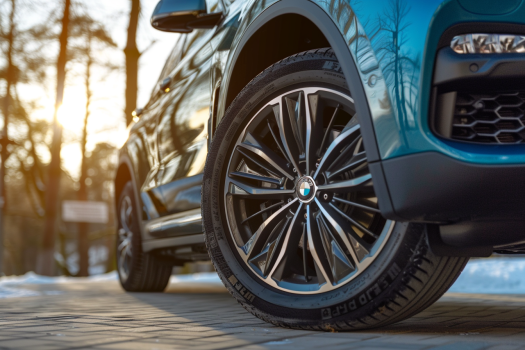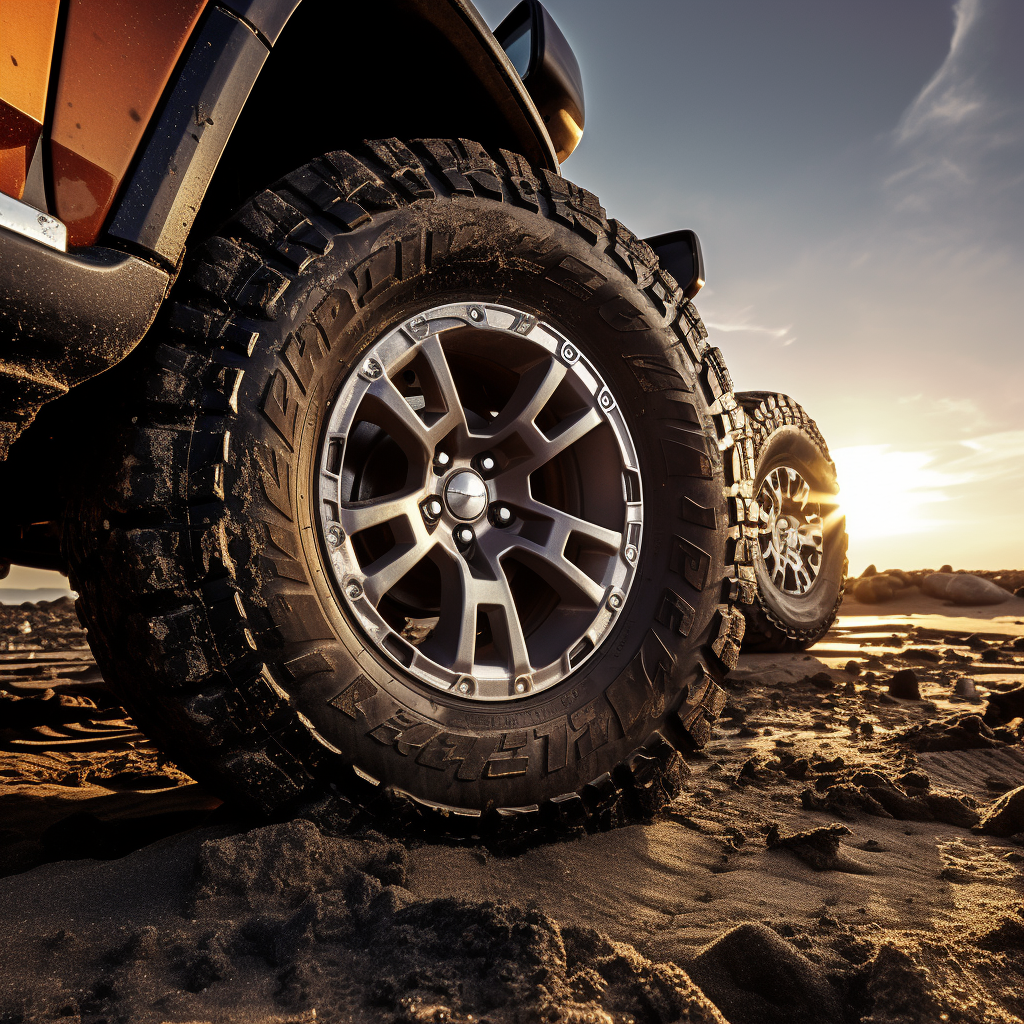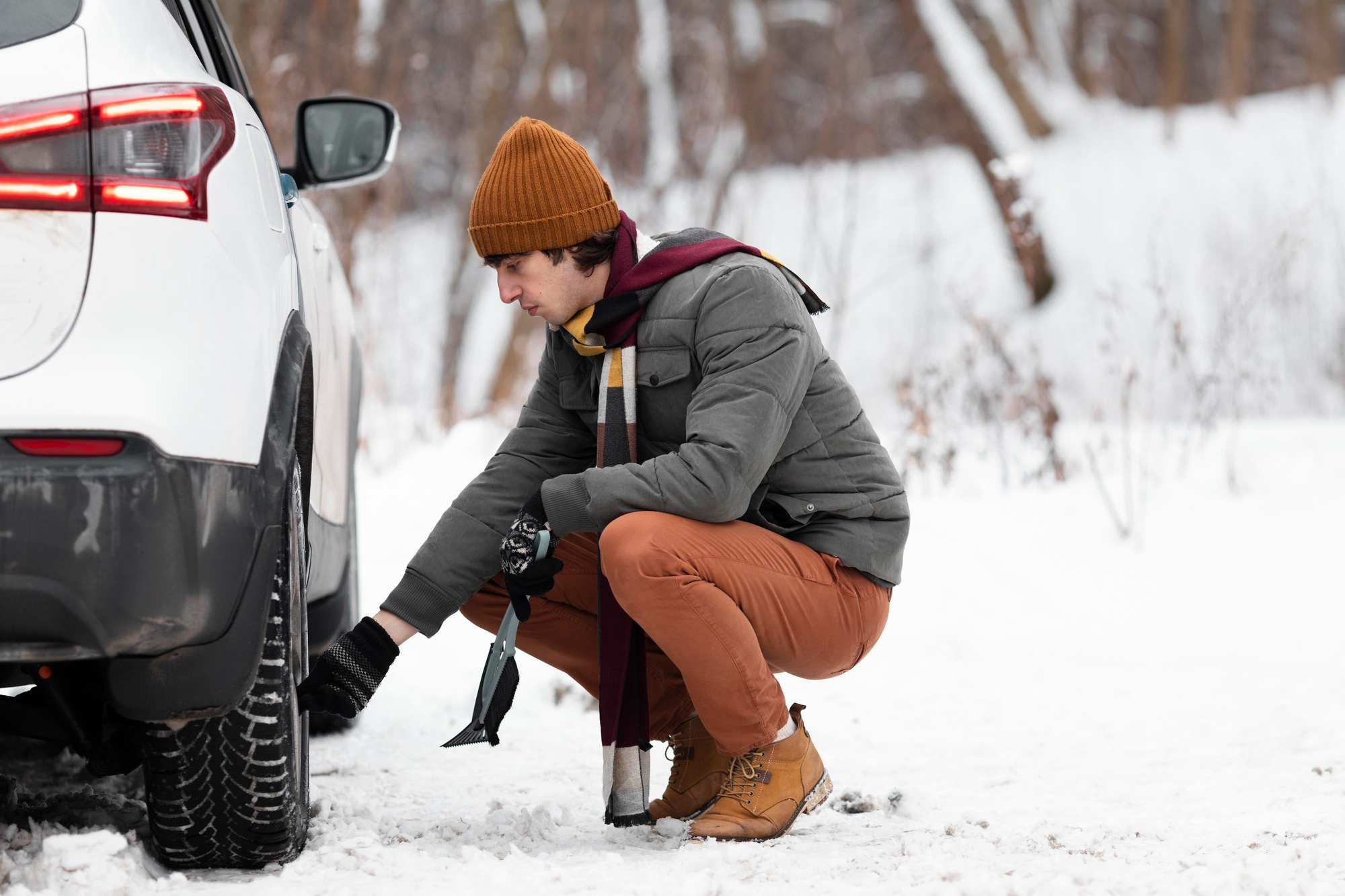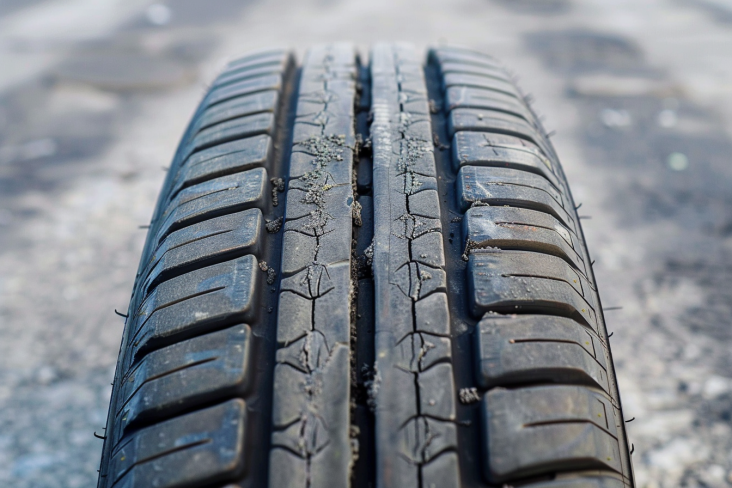Last Updated on September 9, 2024
Discover the Perfect Boat Trailer Tires for Your Water Adventures
Everyone loves spending time out on the boat at the lake. But nobody loves being stuck on the side of the road with a blown-out trailer tire on the way to the lake. Just as you maintain your vehicle and boat, checking and maintaining your boat trailer tires is essential.
Ensuring your trailer has the right tires before you hit the water with your boat is essential. This guide explains how to make the perfect choice for safe and smooth sailing. Your boat deserves the best, starting with the right trailer tires.
When to Buy Boat Trailer Tires
Unless you’re buying a brand new boat and trailer off the dealer lot, you will likely be in the market for some new boat trailer tires. If you don’t know how old the boat trailer tires are, you can check the DOT code on the side of the tire. The last four numbers in the tire DOT code indicate the precise week and year of manufacture. In the example below, this tire was manufactured in the 35th week of 2007.
Now that you know how old your boat trailer tires are, you must evaluate their condition.
An easy way to check if you need new tires is by the tread depth. To do this, you can use the Lincoln penny trick. All you do is set the penny, with the head facing down, into one of the grooves in the tire tread. It’s best to pick a couple of spots on the tire. If you can see the top of Abe’s head with the coin in position, it’s time to start looking for new tires.
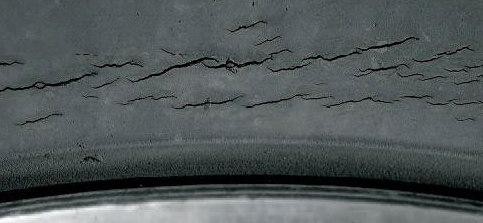
The other thing to check for is cracks in the tire rubber. Boat trailers usually sit unused for long periods. The tread isn’t wearing out when the trailer is parked, but the rubber degrades due to exposure to UV rays and freezing temperatures.
The rubber dries out, and cracks start to appear. These usually occur in the tire’s bead area close to the rim, but you may also see small cracks between the tread blocks or in the tire grooves. Even some discoloration is usually no cause for concern. Deeper cracks warrant closer inspection by a tire expert.
Five Key Steps For Choosing the Right Boat Trailer Tires
Indeed, here are five key steps to consider when choosing the right boat trailer tires for safe and smooth sailing:
- Know Your Boat Trailer’s Weight: Start by determining the weight of your boat and trailer when fully loaded. This information is crucial in selecting tires with the appropriate load-carrying capacity.
- Check the Tire Size: Refer to your trailer’s owner’s manual or inspect the existing tires for their size. Ensure you choose tires that match the rim size and meet the manufacturer’s specifications.
- Choose Special Trailer (ST) Tires: Opt for ST tires explicitly designed for trailers. These tires are constructed to handle heavy loads, resist heat buildup, and provide improved water resistance, making them ideal for marine environments.
- Consider the Tread Pattern: Select a tread pattern that suits your towing needs. If you frequently launch your boat on slippery ramps, use tires with a tread design that offers excellent traction on wet surfaces.
- Regular Maintenance: Once you’ve chosen the right tires, don’t forget to maintain them properly. Check tire pressure regularly, inspect for signs of wear or damage, and keep them properly inflated to ensure safe towing.
By following these steps, you can make an informed choice when selecting boat trailer tires, ensuring that your trailer is equipped for safe and smooth sailing adventures on the water.
What To Buy If You Need New Boat Trailer Tires
Dedicated trailer tires are marked as ST. This will be kept on the tire’s sidewall, along with the size of the tire. The tire may also say, “Trailer use only.” ST tires have stronger sidewalls that allow them to carry a heavier load than standard Passenger car tires or Light Truck tires. There are two kinds of ST tires: bias-ply and radial. Which type of tire you buy will depend on what comes on the trailer, how you use your trailer, and your budget.
In short, bias-ply trailer tires are cheaper and recommended for infrequent short-haul applications, including off-road or heavy loading. If you plan long highway driving trips, consider replacing those bias-ply tires with radial tires. Radial trailer tires are made to run cooler for longer hauls and a longer tread life. Never replace radial tires with bias-ply tires without consulting the trailer manufacturer or a tire professional.
Tires-easy has a user-friendly search selection box that allows you to find trailer tires available in your size and choose between bias ply and radial tires.
Load Range
Now that you know what kind of tire to buy, you must consider the tire’s size and load capacity. The load range on trailers is classified as B, C, D, or E. B is the lightest classification of load capacity, and E carries the heaviest load capacity. Most boat trailer tires fall under C or D. If they hold a C Load, they can carry up to 1,820 lbs.
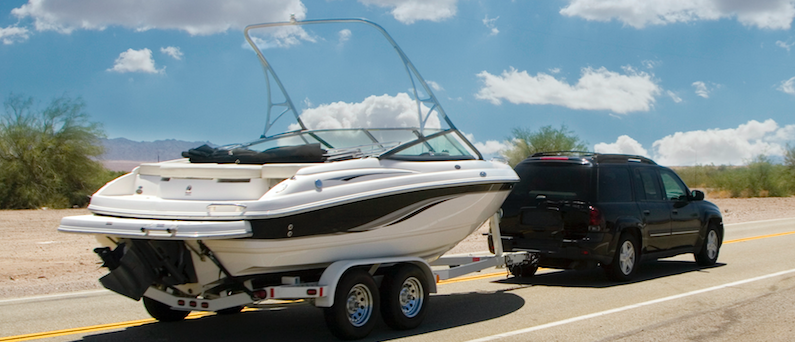
The boat trailer tires can support up to 3,640 lbs on a single-axle trailer. This includes the weight of the trailer, the boat, the engine, and anything else on the ship. It’s important to remember that single-axle trailers can carry 100% of the load rating, but double-axle trailers must have the load reduced by 12%.
Proper Use and Care For Your Boat Trailer Tires
Once you have the perfect set of boat trailer tires, keeping a few things in mind is essential. Even though many of us want to reach our destination as fast as possible, boat trailer tires are made not to exceed speeds of 65 mph (100 km/h). Doing so for long periods could lead to tire failure.
If you are going to be traveling on high-speed highways, you certainly don’t want the weight maxed out. Avoid loading up the boat with extra weight during transport. Moving heavy cargo from the ship to the back of the vehicle allows your trailer tires to withstand slightly higher speeds for extended periods.
It is also necessary to take proper care of your boat trailer tires in the winter season and other periods of nonuse by protecting them from UV light. There are unique wheel covers. However, a standard tarp or coverage in the garage is equally effective.
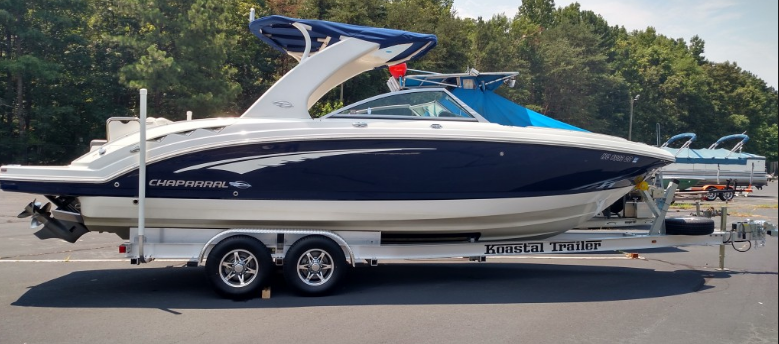
The final thing to remember is to rotate and balance your boat trailer tires as you do on your car or truck. Even turning your tires side to side on a single-axle trailer will help even out irregular treadwear and extend the tire’s life.
On a double axle, the standard X rotation is in order occasionally, particularly if you notice that irregular wear patterns are developing in the tread. With this information, you can feel confident in maintaining your boat trailer tires and making a well-informed purchase!
Conclusion
Regarding your boat trailer, the choice of tires matters for safe and enjoyable water adventures. At Tires Easy, we offer diverse, high-quality boat trailer tires to meet your needs. Ensure your trailer has the right tires, and prepare for smooth sailing on the water.
Ready to equip your boat trailer with the perfect tires? Visit Tires Easy (https://www.tires-easy.com/) to explore our range of boat trailer tires. With the right tires, you can set sail confidently. Get started today!
FAQs
What tire do you use on a boat trailer?
Choosing the right tire for your boat trailer is crucial. Using specifically designed boat trailer tires, often known as “ST” (Special Trailer) tires, is recommended. These tires are engineered to handle the unique demands of towing a boat trailer, including increased load-carrying capacity and enhanced durability. Boat trailer tires are designed to provide stability on the road and improved water resistance, making them the safest choice for marine adventures.
What size tire goes on a boat trailer?
The tire size you need for your boat trailer depends on the trailer’s weight and size. Typically, boat trailers use tires with sizes like 13-inch, 14-inch, or 15-inch rims. The specific size required for your trailer can often be found in the trailer’s owner’s manual or on the existing tires. Choosing the correct size is essential to ensure safe towing and even weight distribution.
How many times does a boat trailer have?
Boat trailers commonly have two tires, but the number of tires can vary depending on the trailer’s size and weight-carrying capacity. Smaller boat trailers may have a single axle with two tires, while larger and heavier trailers may feature a tandem axle configuration with four tires. It’s essential to match the tire quantity with your trailer’s specifications for safe and stable towing.
Can you use regular car tires on a boat trailer?
Using regular passenger car tires on a boat trailer is not advisable. Car tires are not designed to handle the specific requirements of boat trailer towing, which include increased load capacity and resistance to water exposure. Boat trailer tires, marked as “ST” (Special Trailer), are engineered to withstand the challenges of marine environments and ensure safe towing, making them the best choice for your boat trailer.
-
Writer





